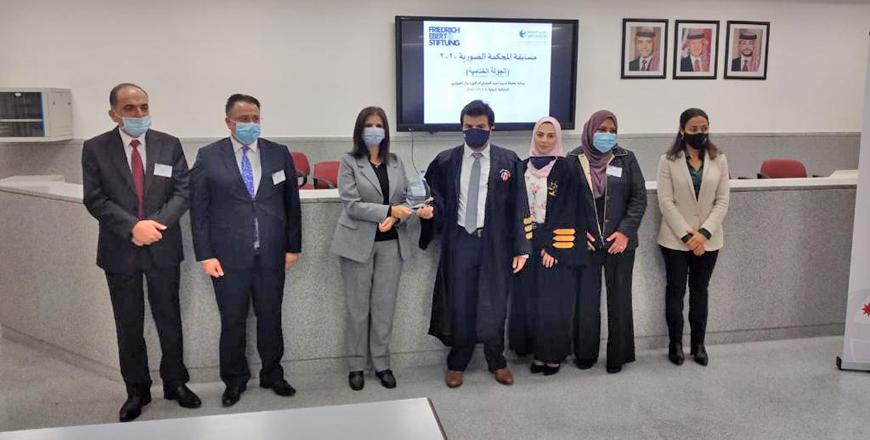You are here
Training on anti-corruption held for academics
By Bahaa Al Deen Al Nawas - Nov 15,2020 - Last updated at Nov 15,2020
AMMAN — Rasheed for Integrity and Transparency on Saturday held an intensive training session on combating corruption and the related international agreements and conventions, in cooperation with the Friedrich Ebert-Stiftung Foundation (FES) and the Jordan Integrity and Anti-Corruption Commission.
The session, held via the video conferencing platform Zoom, saw the participation of academics from Jordanian universities, and introduced anti-corruption concepts and the related national laws, discussing also four international agreements that Jordan has signed.
These include: The United Nations Convention against Corruption, the Arab Anti-corruption Convention, the Arab Convention against Transnational Organised Crime, and the Jordanian-Spanish Cooperation Agreement to Combat Crime.
The participants also learned about the role of Sustainable Development Goals in supporting the anti-corruption drive as well as the best practices implemented in countries that received the highest rankings in anti-corruption indicators.
Moreover, the session focused on the role of boosting human rights and democracy in combating corruption, especially in the International Covenant on Civil and Political Rights as well as the International Covenant on Economic, Social and Cultural Rights.
The session provided the opportunity for participants to exchange their expertise, helping them identify processes that lead to corruption and understand the most significant international efforts exerted in the field.
“This will allow the educators to learn how to combat corruption through legislation, limiting its spread and danger, and thus they can create a practical material for a university curriculum,” Rasheed’s Executive Director Abeer Mdanat told The Jordan Times over the phone.
Mdanat said the session is also part of the “Combating Corruption through Education” project, funded by the Friedrich Ebert Foundation, and it was held in continuation of a session held last year, targeting university lecturers and focussing on modern tools and strategies of teaching the curriculum on the concepts of “integrity, transparency, accountability and combating corruption”.
The curriculum was created to be taught at Jordanian universities, focussing on the aforementioned concepts and their dimensions, in addition to analysing the National Integrity System through identifying the work of each of its bodies.
It showcases related Jordanian legislation and discusses the most significant international standards in combating corruption, which are included in the UN Convention against Corruption, Mdanat said.
The training is also considered a part of the continuous efforts to support the implementation of the second goal of the national integrity and anti-corruption strategy for 2017-2025, she added.
The goal revolves around preparing a national environment that allows participation in the efforts to combat corruption through raising awareness of society, individuals and institutions, Mdanat concluded.
Related Articles
AMMAN — Rasheed for Integrity and Transparency (Transparency International-Jordan) on Sunday held a moot court competition for law students
AMMAN — Rasheed for Integrity and Transparency (Transparency International – Jordan) on Monday launched the second phase of the “Integrity S
AMMAN — Transparency International’s Jordanian chapter, Rasheed for Intregrity and Transparency, recently launched the “Jordanian compass fo
















